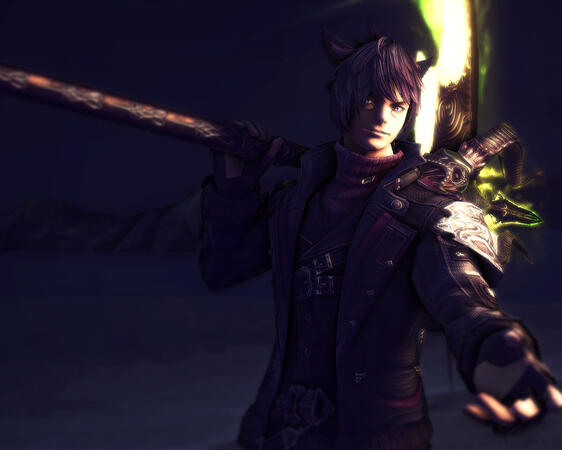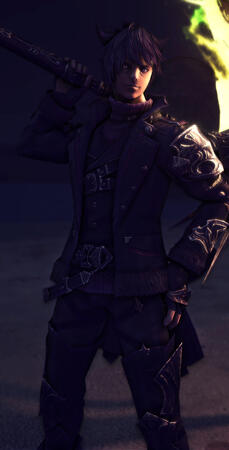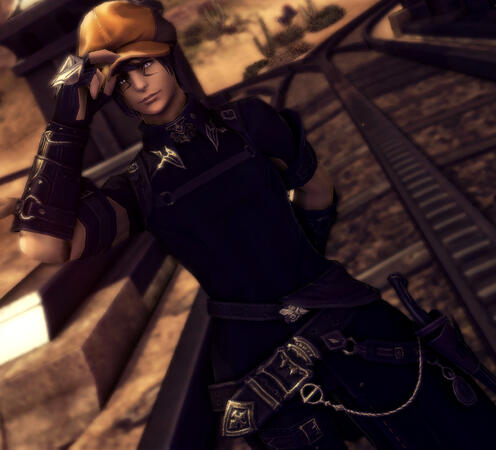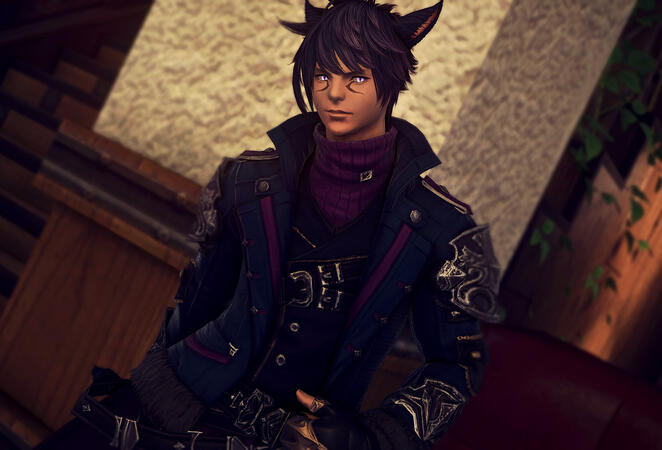
Rhen Rockbreaker
Welcome to the Orange Flat Cap wearing miqo'te's Carrd!
(Currently WIP)
Rhen Out of Character
Hello I am Rhen's player! You can call me Rhen! Below are some OOC stuff that should be noted, thank you.
- I am comfortable with all forms of RP in FF14. Please note that if you want to do any 21+ RP that you are indeed 21+ (both OOC and IC)
- Communication and consent are mandatory and encouraged. Both IC and OOC, if there is a RP you want to do let me know!
- I am in PST zone and work 8am to 5pm. Non-in-game RP can be discussed and done via discord as a possibility if both parties agree. (Discord= ghostrhen)
- I do have moon
- No bleed over! OOC is OOC and IC is IC. That said, if something is bothering you IC, please let me know. Everyone should be having fun!
- No major bodily harm without permission (such as missing limbs, death, etc.)
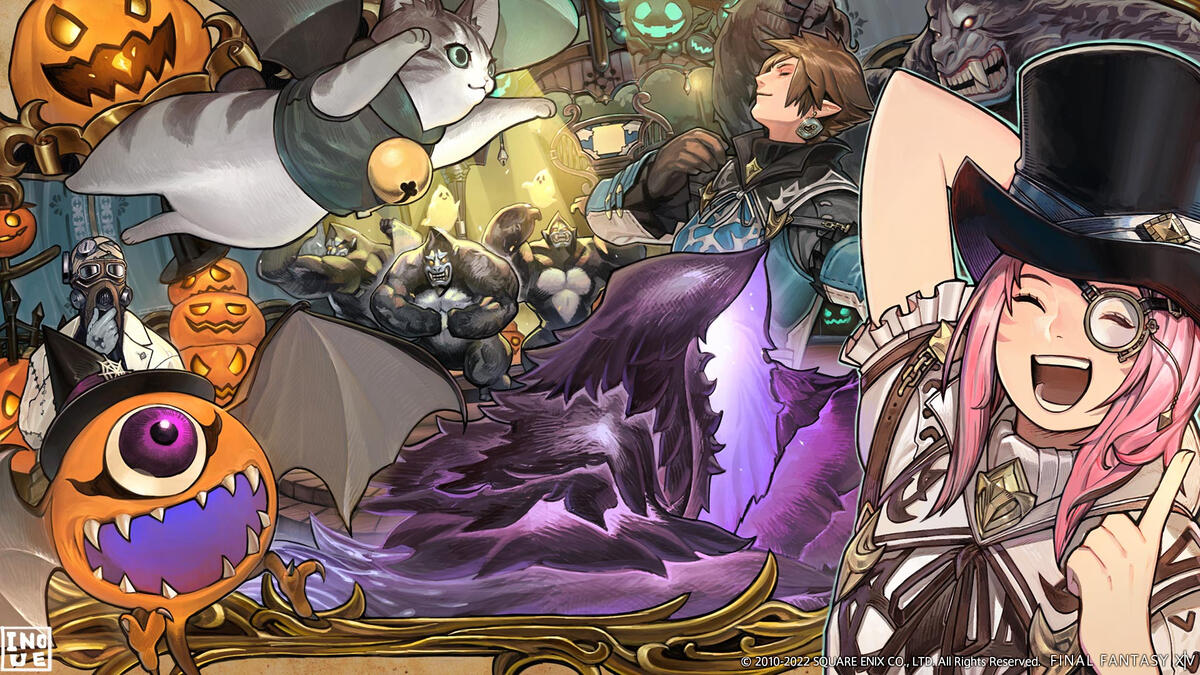
Fishing for RP! (Cause um hooks)
-Rhen does in fact have a bounty on his head, from past endeavors and supposed harming of others.
-Rhen can be found sitting (mostly on the ground) in many different places while he is drawing or dozing off.
-Rhen is a glutton. He loves food and eating, if you feed him, he will consider it an act of friendship. He can't cook to save his life though!
-He always has a hat on, mostly an orange flat cap.
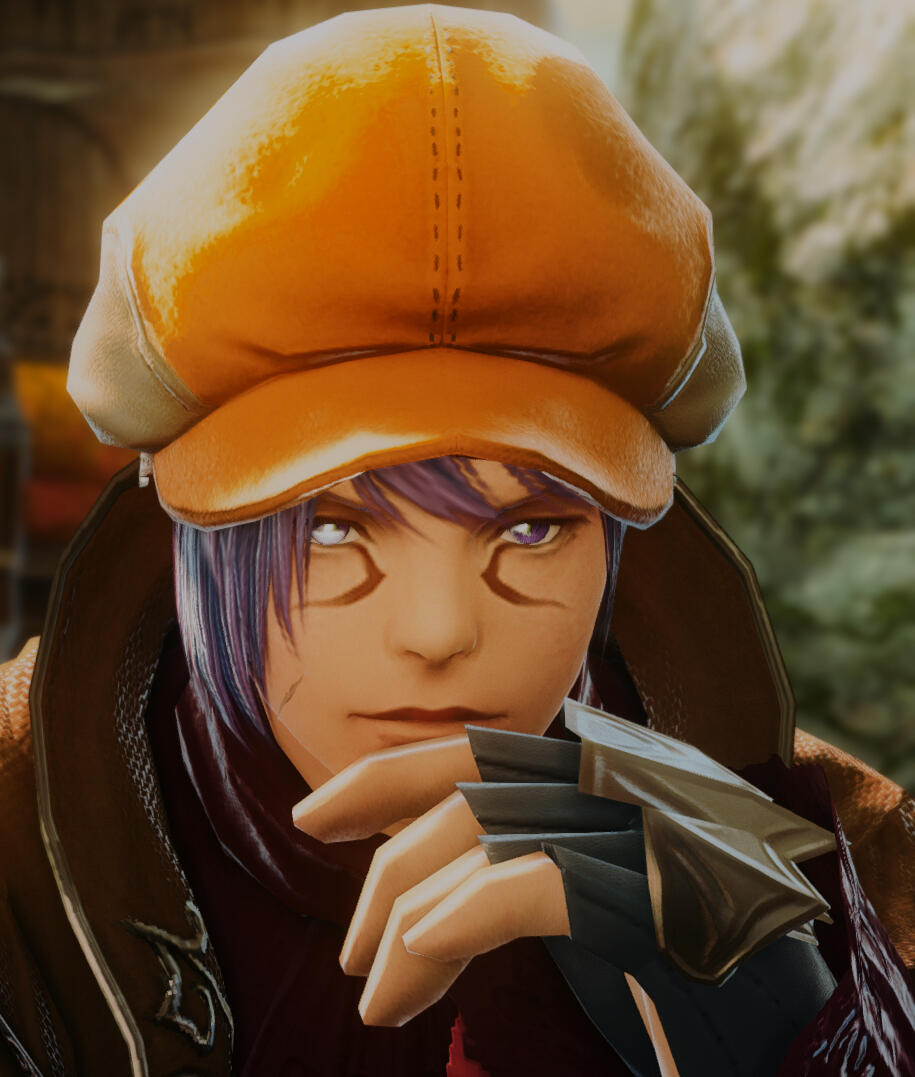
Who is Rhen Rockbreaker?! Some silly cat boy most likely. You know how we are!
Details
Name: Rhen Rockbreaker
age: 26
Height: 5'5
Birthday: 32nd Sun of the 5th Umbral Moon(10/31)
Gender: Male (He/his/Him)
Sexuality: Pansexual
Eyes: Purple (Glowing)
Hair: Blue and Purple
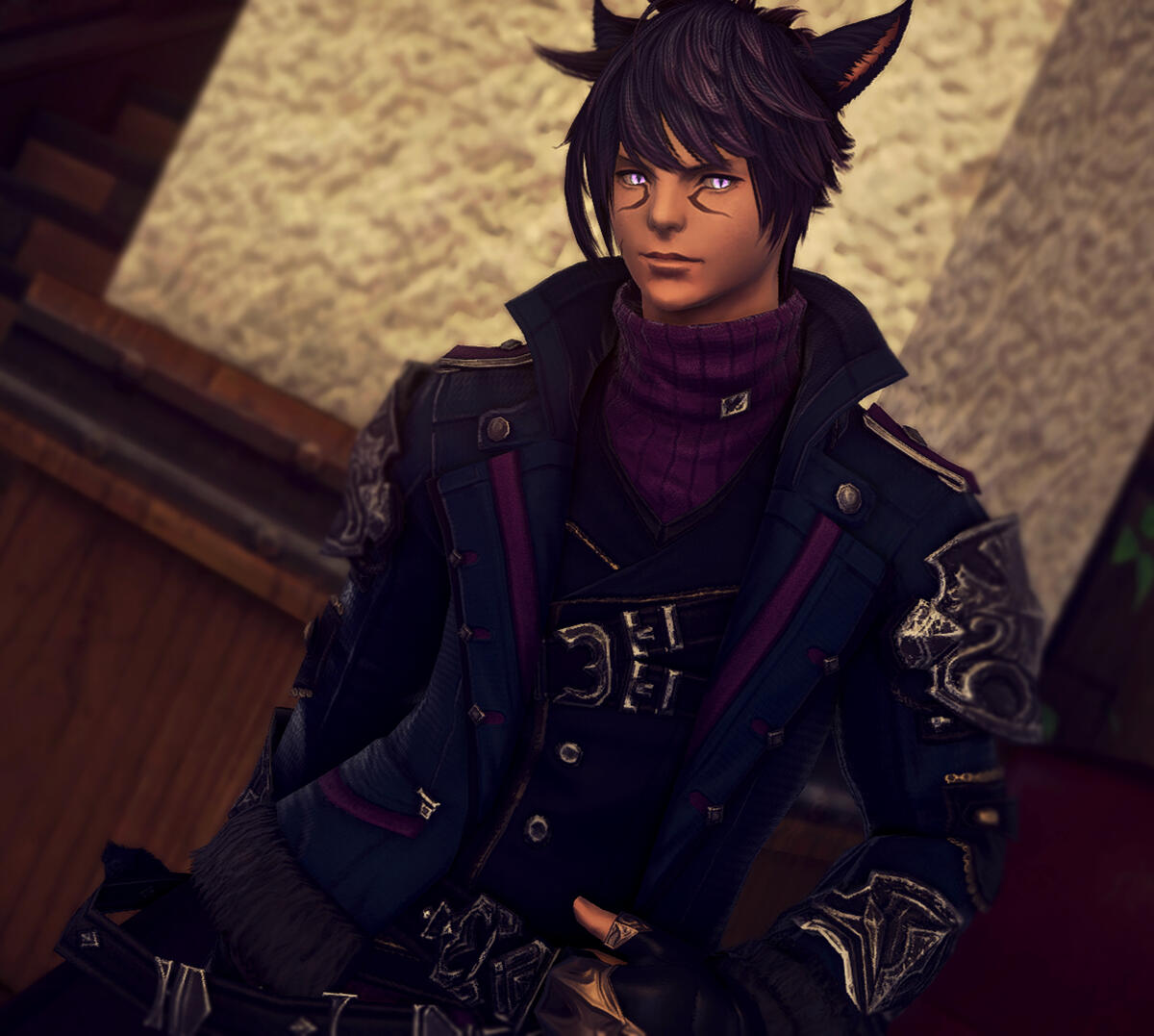
Art Of Rhen
Photo's done by komorebi
Awesome art done by danimariedraws - check em out on Insta!
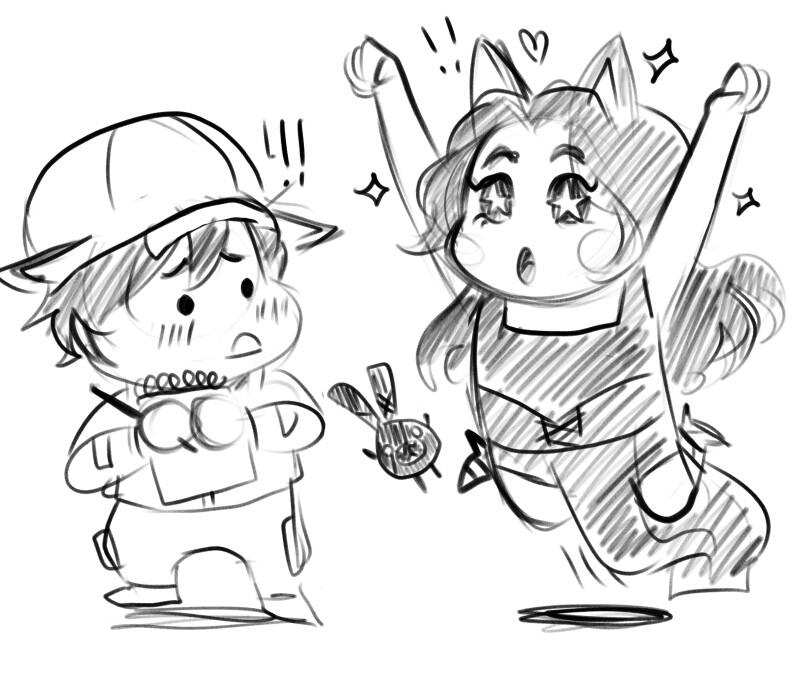
Drawing by NekuDraws
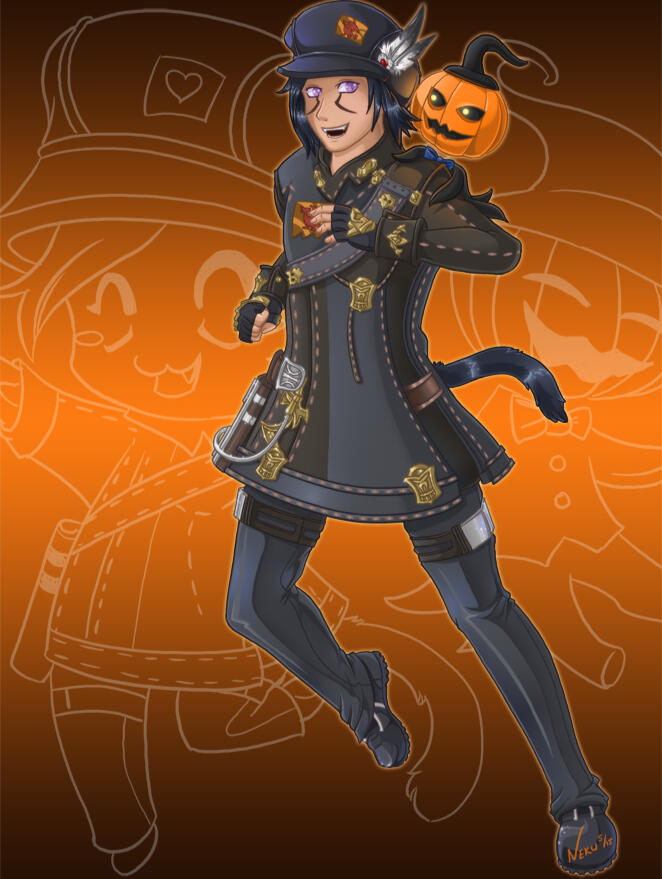
Stories from Rhen's Life!!
Hi There! This part of the site is where you'll find stories on Rhen! From his history to random adventures he has been a part of! Please know that this does not mean you know the stories or his past IC unless discussed otherwise with me!
History of Rhen
History is marked as spoiler because of trigger warns such as physical/psychological abuse and child death.
